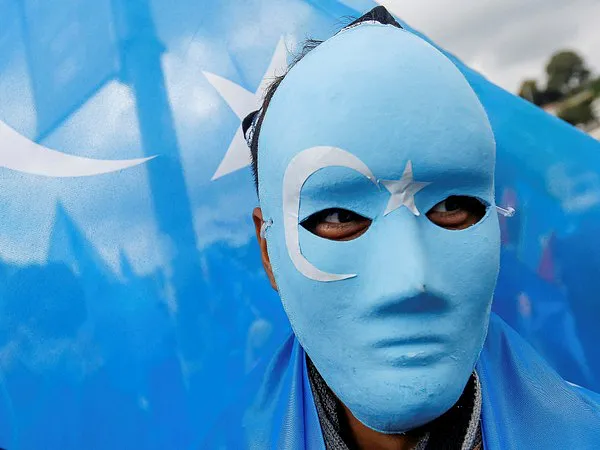A report published by the Office of the UN High Commissioner for Human Rights (OHCHR) on Wednesday stated that China has committed “serious human rights violations” against the Uyghur and “other predominantly Muslim communities” in Xinjiang Uyghur Autonomous Region (XUAR).
The long-awaited report by OHCHR comes in the wake of the visit by UN High Commissioner of Human Rights, Michelle Bachelet in May, who said that “allegations of patterns of torture, or ill-treatment, including forced medical treatment and adverse conditions of detention, are credible, as are allegations of individual incidents of sexual and gender-based violence.”
Published on Bachelet’s final day of her four-year term in office, the report said that the violations have taken place in the context of the Chinese Government’s assertion that it is targeting terrorists among the Uyghur minority with a counter-extremism strategy that involves the use of so-called Vocational Educational and Training Centres (VETCs), or re-education camps.
In a strongly-worded assessment at the end of the report, OHCHR said that the extent of arbitrary detentions against Uyghur and others, in context of “restrictions and deprivation more generally of fundamental rights, enjoyed individually and collectively, may constitute international crimes, in particular crimes against humanity.”
The assessment was initiated following serious allegations of human rights violations against Uyghurs and other predominantly Muslim communities brought to the attention of the UN Human Rights Office and UN human rights mechanisms since late 2017, particularly in the context of the Chinese Government’s policies and measures to combat terrorism and “extremism”.
The OHCHR said that the government policy in recent years in Xinjiang has “led to interlocking patterns of severe and undue restrictions on a wide range of human rights.”
Even if the VETC system has as China says, “been reduced in scope or wound up”, said OHCHR, “the laws and policies that underpin it remain in place”, leading to an increased use of imprisonment.
The systems of arbitrary detention and related patterns of abuse since 2017, said OHCHR, “come against the backdrop of broader discrimination” against Uyghur and other minorities.
“This has included far-reaching, arbitrary and discriminatory restrictions on human rights and fundamental freedoms, in violation of international laws and standards”, including restrictions on religious freedom and the rights to privacy and movement.
The assessment is based on a rigorous review of documentary material currently available to the Office, with its credibility assessed in accordance with standard human rights methodology.
Particular attention was given to the government’s own laws, policies, data and statements. The Office also requested information and engaged in dialogue and technical exchanges with China throughout the process.
The information was assessed against applicable international human rights law, and builds on the work of a number of UN human rights mechanisms.
Furthermore, the report said that Chinese government policies in the region have “transcended borders”, separating families, “severing” contacts, producing “patterns of intimidations and threats” against the wider Uyghur diaspora who have spoken out about conditions at home.
The OHCHR said that the Chinese government “holds the primary duty to ensure that all laws and policies are brought into compliance with international human rights law and to promptly investigate any allegations of human rights violations, to ensure accountability for perpetrators, and to provide redress to victims.”
The UN rights office recommended China to take “prompt steps” to release all individuals arbitrarily imprisoned in XUAR, whether in camps or any other detention centre.
China should let families know the whereabouts of any individuals who have been detained, providing exact locations, and help to establish “safe channels of communication” and allow families to reunite, said the report.
The report calls on China to undertake a full legal review of its national security and counter-terrorism policies in XUAR, “to ensure their full compliance with binding international human rights law” and repeal any laws that fall short of international standards.
It also calls for a prompt government investigation into allegations of human rights violations in camps and other detention facilities, “including allegations of torture, sexual violence, ill-treatment, forced medical treatment, as well as forced labour and reports of deaths in custody.”
Meanwhile, the Chinese government rebutted the long and detailed report of OCHR and said that authorities in the Xinjiang region operate on the principle that everyone is equal before the law, “and the accusation that its policy is ‘based on discrimination’ is groundless.”
China said that its counter-terrorism and “de-radicalization efforts” in the region, had been conducted according to “the rule of law” and by no means add up to “suppression of ethnic minorities.”
On the issue of the camps, Beijing responded that the VETCs are “learning facilities established in accordance with law intended for de-radicalization” and not “concentration camps”.

